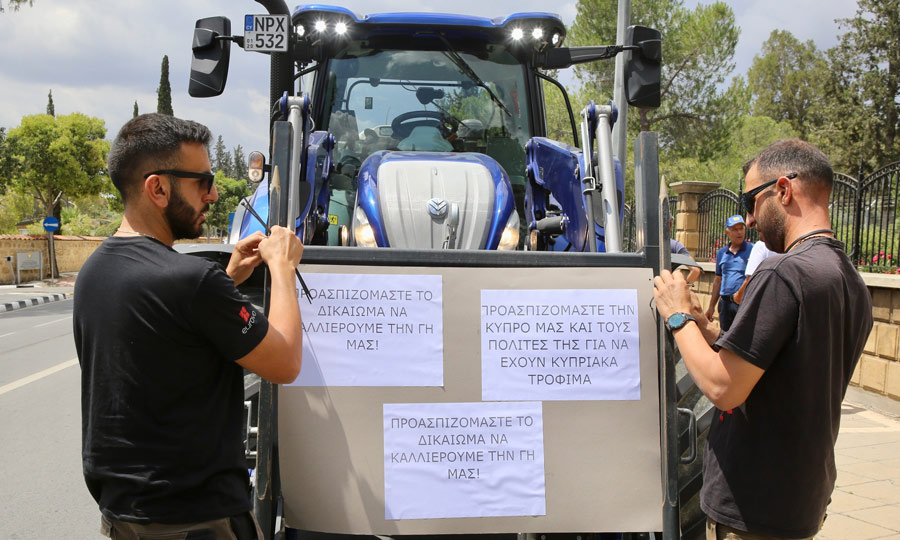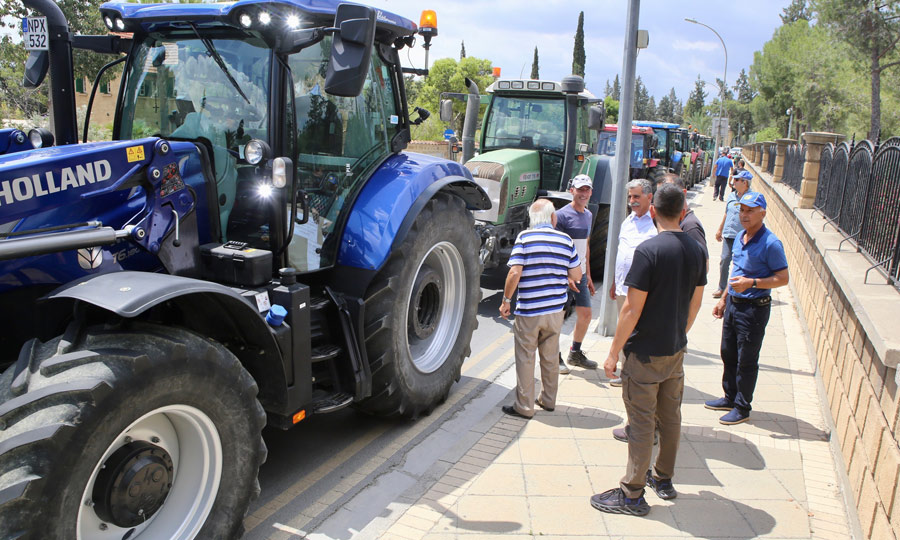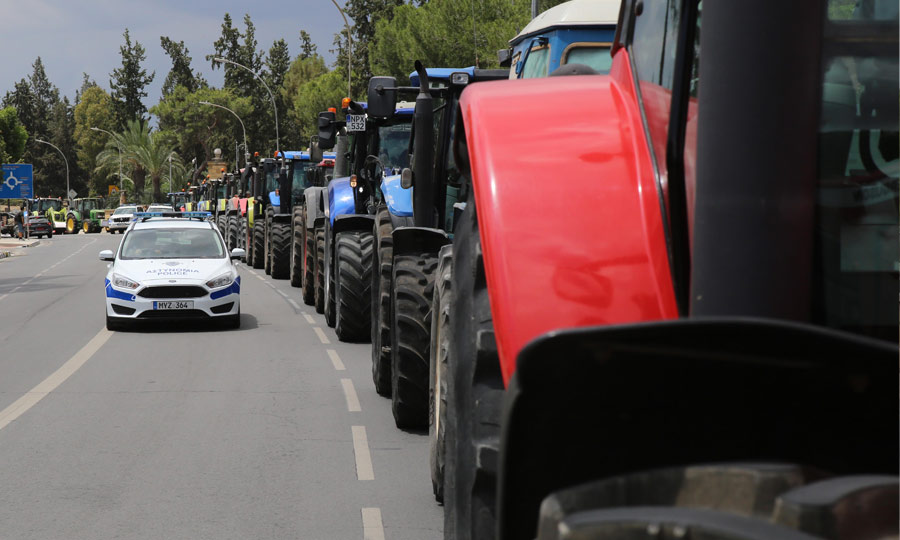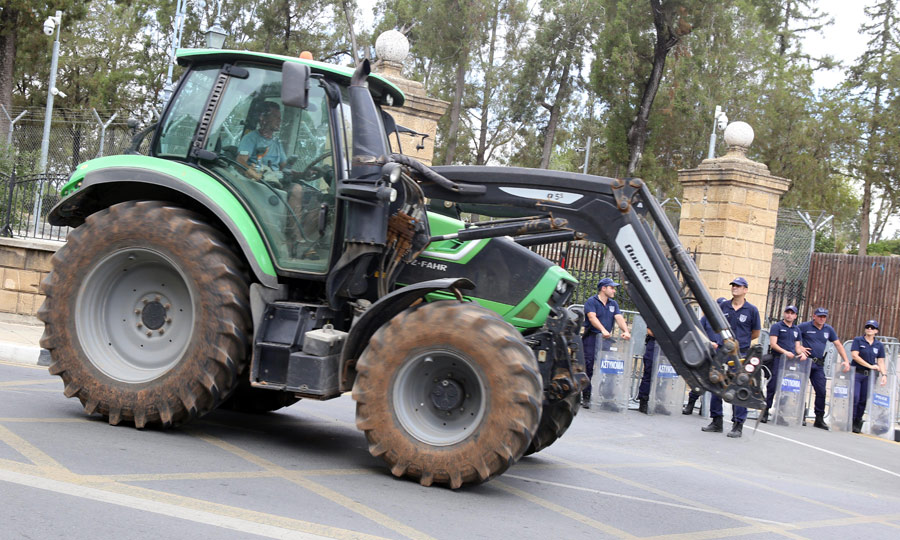
Kathimerini
The European Commission is addressing farmers' concerns regarding the proposed regulation on plant protection in the European Union. They assure that the implementation of the new rules will be gradual, aiming to minimize any impact on production and food prices.
Protests have been taking place across Europe on this issue, with farming organizations in Cyprus rallying in Nicosia today (Monday, 19/06) to submit a memorandum to the Presidential Council. According to these organizations, if the new plant protection regulation is approved, it would lead to the abandonment of a significant portion of agricultural land, resulting in severe environmental consequences. The regulation prohibits spraying in NATURA 2000 areas, which include dams, rivers, flora, fauna, and sensitive residential areas. The farmers argue that this provision would result in the loss of approximately 79% of agricultural land that remains available to them.

Sources from the European Commission acknowledge the farmers' concerns, emphasizing that the Commission's proposal serves as a starting point for negotiations with the Parliament and the Council, the co-legislators. They emphasize that an extensive impact study and broad public consultation were conducted prior to the proposal's adoption. Moreover, they highlight the clear message from citizens during the Future of Europe conference, expressing their desire for reduced pesticide usage in food production. The sources note that pesticides can have both immediate and long-term health effects, emphasizing the need to ensure the well-being of consumers and producers alike.
Farmers will be supported
The European Commission sources emphasize that farmers will receive support, not only in Cyprus but in all European countries. It has been ensured that the costs incurred by farmers due to the upcoming changes will be fully covered by the Common Agricultural Policy (CAP) for a period of five years. The Commission is prepared to collaborate closely with the Council, the European Parliament, and national and local stakeholders to find the most favorable compromise solutions that meet the expectations of citizens and farmers. They emphasize that promoting sustainability today will not only benefit consumers, farmers, and food producers but also serve as an investment in our future.
Furthermore, they highlight that the new targets for pesticide reduction will consider the specific circumstances of each Member State. The concerns expressed by Member States have been taken into account. However, it is important to acknowledge that Member States that have already made significant reductions in the use and risk of chemical pesticides, as well as the use of more hazardous pesticides, will be acknowledged for their efforts. They will have the flexibility to set less demanding targets. Conversely, Member States that have not made sufficient progress, including Cyprus, should aim for more ambitious targets. It is essential for everyone to contribute in a fair and effective manner.
The primary sector is disappearing
During today's protest, farmers demanded significant changes to the agricultural policy, referring to it as a threat to the farming profession and the primary sector. In a memorandum addressed to the Government Spokesman, they urged the President of the Republic, the Minister, and the Negotiating Council to support efforts to revise this detrimental policy. Their goal is to secure the survival of farmers, promote the development of the Cypriot agricultural sector, protect the economy of the country, and prevent Cyprus from facing economic and food-related devastation. Representing the Cyprus Pan-Agricultural Union, Michael Lytras expressed the concerns shared by all farmers, growers, and livestock farmers regarding the European Union's regulation that prohibits the use of chemical preparations for disease control. He called upon the European Union to recognize the risks to the food chain and withdraw the regulation. Lytras emphasized that the survival of Cypriot agriculture is at stake, especially considering the adverse effects of climate change on weather conditions. He expressed solidarity with European farmers and vowed to continue the struggle together.
Representing the Cyprus Pan-Agricultural Union, Michael Lytras expressed the concerns shared by all farmers, growers, and livestock farmers regarding the European Union's regulation that prohibits the use of chemical preparations for disease control. He called upon the European Union to recognize the risks to the food chain and withdraw the regulation. Lytras emphasized that the survival of Cypriot agriculture is at stake, especially considering the adverse effects of climate change on weather conditions. He expressed solidarity with European farmers and vowed to continue the struggle together.
Speaking on behalf of the Pancyprian Potato Producers Organization, Andreas Carios pointed out that the profession already faces various challenges, and the regulation adds another burdensome barrier. He described it as more than just an additional challenge; it is the final blow to today's farmers. Carios highlighted that the primary sector will face closure if the regulation is implemented, even preventing the use of organic cover crops. While acknowledging the strictness of the regulation, he called for further improvements, emphasizing the need for dynamic decisions. Carios expressed determination to take the fight to Brussels, as the fate of the primary sector hangs in the balance.
Panicos Hambas, Secretary General of the CSR, emphasized the crucial role of farmers in cultivating the land, preserving biodiversity, and providing consumers with healthy products. He advocated for green growth that respects producers, consumers, and the environment of Cyprus. Hambas expressed concerns that the current European Union development plans would jeopardize the Troodos region and limit the availability of affordable food for consumers. He stressed the need for sustainable growth that aligns with the principles of legality, consumer health, and environmental preservation.































